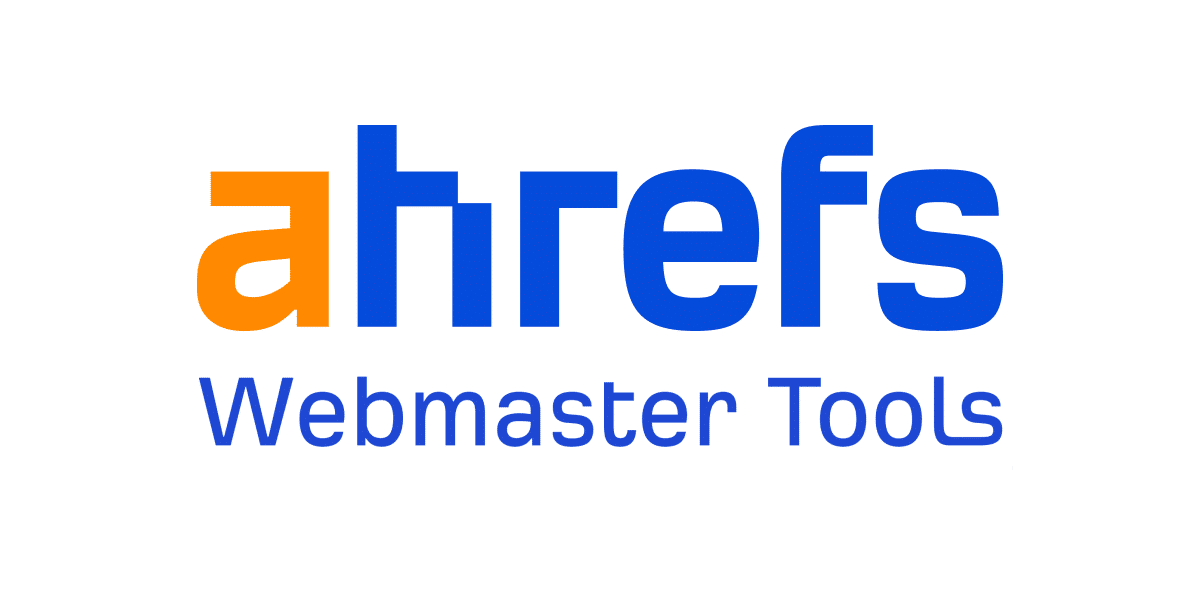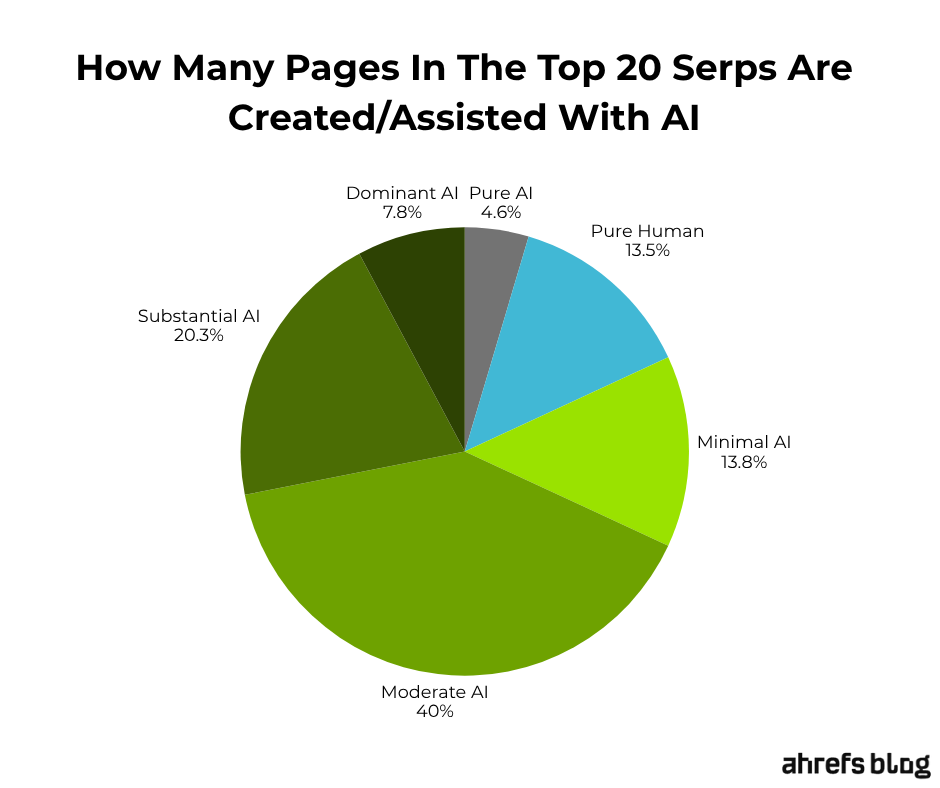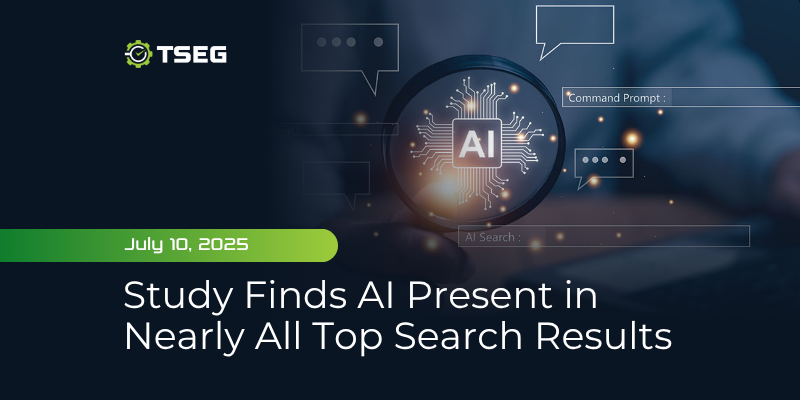Study Finds AI Present in Nearly All Top Search Results
Posted on Friday, July 11th, 2025 at 12:33 pm
The Truth Behind What’s Ranking on Google
There’s a lot of talk in the SEO world about whether using AI to create content hurts rankings. A recent study from Ahrefs took that question head-on by analyzing 600,000 pages and 100,000 keywords. They found that AI content is not sinking performance. In fact, most high-ranking pages are using it.
According to the data, 86.5 percent of top-performing URLs include some level of AI-generated text. That includes everything from small AI-assisted edits to larger portions of content built with language models.
This matters for any law firm leveraging generative AI in their content plans to rank organically. Ahref’s data confirms that AI itself isn’t the issue. Overuse, poor editing, and lack of human oversight can cause problems for your website’s rankings.
What the Data Shows About AI Use in Top Content
Ahrefs analyzed 600,000 pages across 100,000 keywords to measure how much AI-generated content appears in top-ranking search results. The findings were clear. Most high-performing content includes some amount of AI involvement.
- Only 4.6 percent of the pages were labeled as fully AI-generated.
- Just 13.5 percent were entirely human-written.
- The majority, 81.9 percent, combined both. (This blend is what continues to push pages higher in search.)
These results reinforce a familiar theme. AI content works when paired with human direction. As we’ve stated in our blog before, the best results are coming from teams that treat AI as a tool, not a replacement.
Breaking Down the Levels of AI in High-Ranking Pages
The Ahrefs study also categorized how much of each page was generated by AI into four levels.
- – 13.8% showed minimal AI use, where only 1 to 10% of the page was flagged as AI-generated
- – 40% showed moderate use, with 11 – 40% of the content created by AI
- – 20.3% showed substantial use, between 41 – 70% AI
- – 7.8% showed dominant use, with 71 – 99% AI involvement
No matter the level of AI assistance, what matters is how that content is reviewed, refined, and aligned with user intent. That’s the difference between content that climbs in rankings and content that fades out of SERPs.

How Google Views AI Content Today
Google’s approach to AI-generated content has changed over time. What once triggered automatic penalties is now being evaluated through a different lens. The company has made it clear that content will be judged on quality, not on how it was created.
That means AI-generated or AI-translated pages are no longer at risk of being penalized just because they involve machine assistance. Instead, Google’s systems are focused on whether the content is useful, original, and clearly created to help the reader.
That change has opened the door for widespread AI use across industries. But it didn’t lower the bar for quality. If anything, expectations have increased. Pages that rely too much on unedited or repetitive AI output tend to fall off over time. The best performers still include human review and a clear brand voice.
For law firms publishing content online, this makes your AI strategy even more important. AI can help you create faster. But it won’t replace the value of precision, clarity, and a voice that builds trust with potential clients.
Why Human Input Still Drives Results
The Ahrefs study confirms what we’ve seen in practice. AI-generated content is not hurting rankings. Most top-performing pages include it, but they don’t publish it without oversight.
Successful sites use AI as a starting point. Then they apply editing, structure, and strategy. That extra layer makes content more readable, more accurate, and more aligned with what users actually search for.
For law firms, this points to a clear direction. You don’t have to avoid AI, but you do need a process for it. Pages that rank and convert are built with intent. That means reviewing for tone, updating for accuracy, and removing anything that sounds artificial.
At TSEG, we build content strategies that combine smart use of AI with editorial oversight. Our process helps law firms publish content that gets seen, builds trust, and brings in new cases. Call us for more info today.
